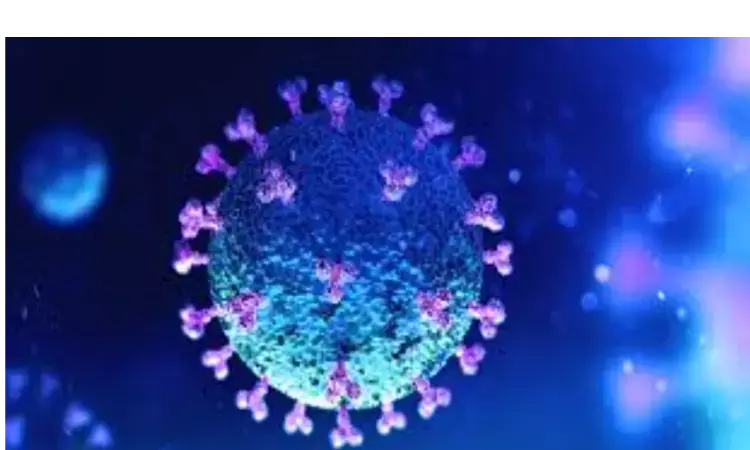- Home
- Medical news & Guidelines
- Anesthesiology
- Cardiology and CTVS
- Critical Care
- Dentistry
- Dermatology
- Diabetes and Endocrinology
- ENT
- Gastroenterology
- Medicine
- Nephrology
- Neurology
- Obstretics-Gynaecology
- Oncology
- Ophthalmology
- Orthopaedics
- Pediatrics-Neonatology
- Psychiatry
- Pulmonology
- Radiology
- Surgery
- Urology
- Laboratory Medicine
- Diet
- Nursing
- Paramedical
- Physiotherapy
- Health news
- Fact Check
- Bone Health Fact Check
- Brain Health Fact Check
- Cancer Related Fact Check
- Child Care Fact Check
- Dental and oral health fact check
- Diabetes and metabolic health fact check
- Diet and Nutrition Fact Check
- Eye and ENT Care Fact Check
- Fitness fact check
- Gut health fact check
- Heart health fact check
- Kidney health fact check
- Medical education fact check
- Men's health fact check
- Respiratory fact check
- Skin and hair care fact check
- Vaccine and Immunization fact check
- Women's health fact check
- AYUSH
- State News
- Andaman and Nicobar Islands
- Andhra Pradesh
- Arunachal Pradesh
- Assam
- Bihar
- Chandigarh
- Chattisgarh
- Dadra and Nagar Haveli
- Daman and Diu
- Delhi
- Goa
- Gujarat
- Haryana
- Himachal Pradesh
- Jammu & Kashmir
- Jharkhand
- Karnataka
- Kerala
- Ladakh
- Lakshadweep
- Madhya Pradesh
- Maharashtra
- Manipur
- Meghalaya
- Mizoram
- Nagaland
- Odisha
- Puducherry
- Punjab
- Rajasthan
- Sikkim
- Tamil Nadu
- Telangana
- Tripura
- Uttar Pradesh
- Uttrakhand
- West Bengal
- Medical Education
- Industry
In 15% COVID-19 patients Symptoms may persist over months: Study

Sweden: About 15% of low-risk people with mild COVID-19 symptoms still reported symptoms after 8 months, according to a research letter in JAMA.
"A considerable portion of people with mild COVID-19 reported a diversity of long-term symptoms. These symptoms disrupted social, work, and home life," wrote the authors.
Roughly 80% of the COVID-19 patients who are hospitalized, reported persistent symptoms several several months following infection onset. However, there is scarce knowledge on long-term outcomes among individuals with mild COVID-19. The prevalent data is hampered by suboptimal control groups and selection bias. The cohort study by Sebastian Havervall, Danderyd Hospital, Karolinska Institute, Stockholm, Sweden, and colleagues investigated long-term immunity after mild COVID-19 in health care professionals at Danderyd Hospital, Stockholm, Sweden in COMMUNITY (COVID-19 Biomarker and Immunity) study. The number of participants were limited to 2000 because of testing restrictions.
Blood sampling was performed every 4 months. Using questionnaires at baseline, demographics, symptoms and severity (mild or severe), and chronic diseases were obtained. It excluded participants who were seropositive SARS-CoV-2 anti–spike IgG at baseline and who reported severe symptoms were excluded, as were initially seronegative participants who seroconverted during follow-up.
After 8 months, participants reported via smartphone app the presence, duration (<2 months, ≥2 months, ≥4 months, ≥8 months), and severity (mild, moderate, or severe) of 23 predefined symptoms. Sheehan Disability Scale was used to score functional impairment from present or prior long-term symptoms (0, not at all; 1-3, mild; 4-6, moderate; and 7-10, marked) in 3 interrelated domains (work, social, and home life) for participants reporting at least 1 symptom persistent for at least 2 months.
Participant enrollment was closed after 2149 of 4375 health care professionals (49%) enrolled; 393 were seropositive. Fifty seropositive participants with severe symptoms and 404 seronegative participants who seroconverted were excluded. Twenty seropositive and 280 seronegative participants did not complete the 8-month follow-up, leaving 323 (94%) seropositive and 1072 (84%) seronegative participants.
Key findings of the study include:
- Underlying chronic disease was reported by 71 (22%) seropositive participants vs 254 (24%) seronegative participants.
- Comparing seropositive vs seronegative participants, 26% vs 9% reported at least 1 moderate to severe symptom lasting for at least 2 months (RR, 2.9) and 15% vs 3% reported at least 1 moderate to severe symptom lasting for at least 8 months (RR, 4.4).
- The most common moderate to severe symptoms lasting for at least 2 months in the seropositive group were anosmia, fatigue, ageusia, and dyspnea.
- Of the seropositive participants, 8% reported that their long-term symptoms moderately to markedly disrupted their work life, compared with 4% of the seronegative participants (RR, 1.8); 15% reported their long-term symptoms moderately to markedly disrupted their social life, compared with 6% of the seronegative participants (RR, 2.5); and 12% reported that their long-term symptoms moderately to markedly disrupted their home life, compared with 5% of the seronegative participants (RR, 2.3).
- 11% of the seropositive participants reported moderate to marked disruption in any Sheehan Disability Scale category as well as having at least 1 moderate to severe symptom lasting for at least 8 months, compared with 2% of the seronegative participants (RR, 4.5).
"Our results showed that a considerable portion of low-risk individuals with mild COVID-19 reported a diversity of long-term symptoms, and that these symptoms disrupted work, social, and home life," wrote the authors. "Limitations of the study include the possibility of recall bias and the subjective rating of symptoms. Further research is needed to understand the mechanisms underlying COVID-19–related long-term sequelae."
Reference:
The study titled, "Symptoms and Functional Impairment Assessed 8 Months After Mild COVID-19 Among Health Care Workers," is published in the journal JAMA.
DOI: https://jamanetwork.com/journals/jama/fullarticle/2778528
Dr Kamal Kant Kohli-MBBS, DTCD- a chest specialist with more than 30 years of practice and a flair for writing clinical articles, Dr Kamal Kant Kohli joined Medical Dialogues as a Chief Editor of Medical News. Besides writing articles, as an editor, he proofreads and verifies all the medical content published on Medical Dialogues including those coming from journals, studies,medical conferences,guidelines etc. Email: drkohli@medicaldialogues.in. Contact no. 011-43720751


